Mikaela Shiffrin's View From the Top

Mikaela Shiffrin took the call that changed everything on the first day of February, at a mountain resort high in the Italian part of the Alps. She had been holed up there for an in-season training break, two months into a campaign that she had described in November as one of great “transition.” She wanted to build on her unprecedented 17 World Cup victories from a year earlier and add to her already-astounding career total. But she would continue her march toward the all-time wins record without her grandmother—her beloved Nana died last year—and while acclimating to changes with her team and its training operation. And she tried to do it all while wrestling with the fact that though she belonged among the planet’s most dominant athletes, she couldn’t always see herself that way.
None of that mattered when the call came, when Shiffrin, only 24, learned that her father, Jeff, had suffered a grave injury in an accident at home in Colorado. Mikaela and her mother, Eileen, immediately flew back from Europe and were able to spend Jeff’s final hours by his side. He was 64. Details were scarce in the immediate aftermath, but condolences were not. Jeff Shiffrin had that kind of outsize impact on people he met, from the patients he looked after to the many members of the ski-racing community who watched his daughter blossom into the rare transcendent star who never came across that way.
Mikaela posted about her father on her social media accounts, describing her family as “heartbroken beyond comprehension” and her father as “kindhearted, loving, caring, patient.” He was, she wrote, “our mountains, our ocean, our sunrise, our heart, our soul, our everything.” Leaving behind the World Cup circuit, she headed home to Edwards, Colo., with no set timetable as to when she might return before the season ends in March.
So much had already happened in the previous 18 months, as Shiffrin turned in that record-breaking season and grappled with her growing celebrity. Learning to accept all the trappings that came with her success, she hoped to let the rest of the world into the bubble where she had lived most her life. And she had started to find order there, at least until her father died, and then nothing made sense again.
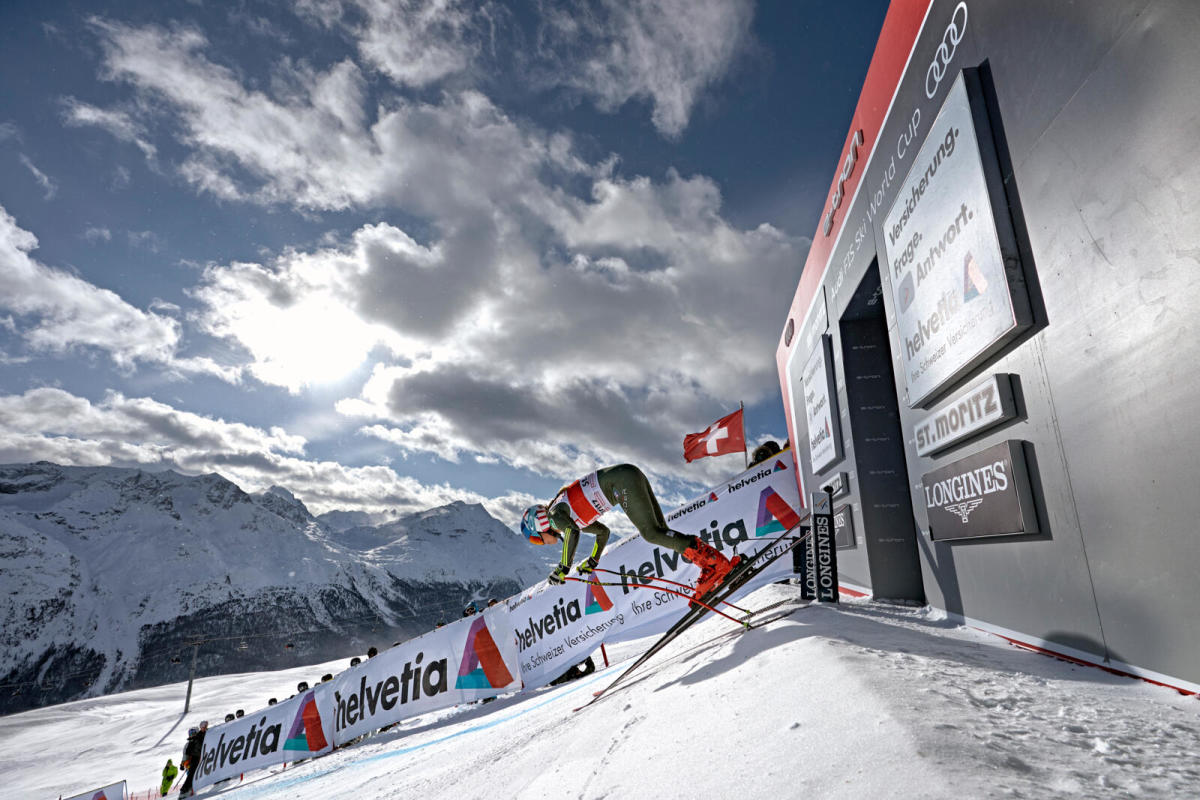
***
Jeff Shiffrin grew up in New Jersey but spent many weekends throughout his childhood skiing in Vermont. He raced at Dartmouth and continued to zip down mountains competitively after becoming an anesthesiologist. He had met his wife, Eileen, while both worked at St. Elizabeth Hospital, outside Boston. She was a nurse who also hailed from a mountain family, and she would soon join Jeff on the Masters circuit, where she won more often than he did. They had one of their first dates at Killington Mountain in Vermont. It was, more or less, love at first schuss.
Mikaela’s path to greatness started early, with two parents who famously put her and her older brother, Taylor, on skis in the family driveway—at age two. Mikaela advanced, step-by-step, in what Jeff liked to call “the gradual progression of skill acquisition,” moving from the driveway to a snow-covered golf course; from wearing hard boots to skis with edges; finally trailing her parents down the slopes before, pretty quickly, passing them, too.
Born in Vail, Colo., Mikaela later honed her technique in Vermont, at Burke Mountain Academy, where she idolized racers like Bode Miller. The first time that Tiger Shaw, now CEO of the U.S. Ski and Snowboard Association, saw Shiffrin speed down a mountain, he knew she would win professional races. She was 12.
In those early years, Shiffrin lived a largely insular existence with her parents close by her side. Eileen became her teacher, her mentor and her coach. Jeff stayed more in the background, but he remained very much involved. He could often be seen at the bottom of courses, the proud dad, with a camera hanging around his neck. Mikaela often described her father as the family’s “rock.”
As the years passed and Mikaela exceeded any reasonable expectations, she began drawing comparisons to other prodigious young stars like Wayne Gretzky and Tiger Woods. Her single-minded determination made her not only dominant, but isolated as well. Sometimes, she says, she feels like a “bubble boy” when strangers approach. “I feel like [they] look at me and are like, Do we speak to it?” she says.
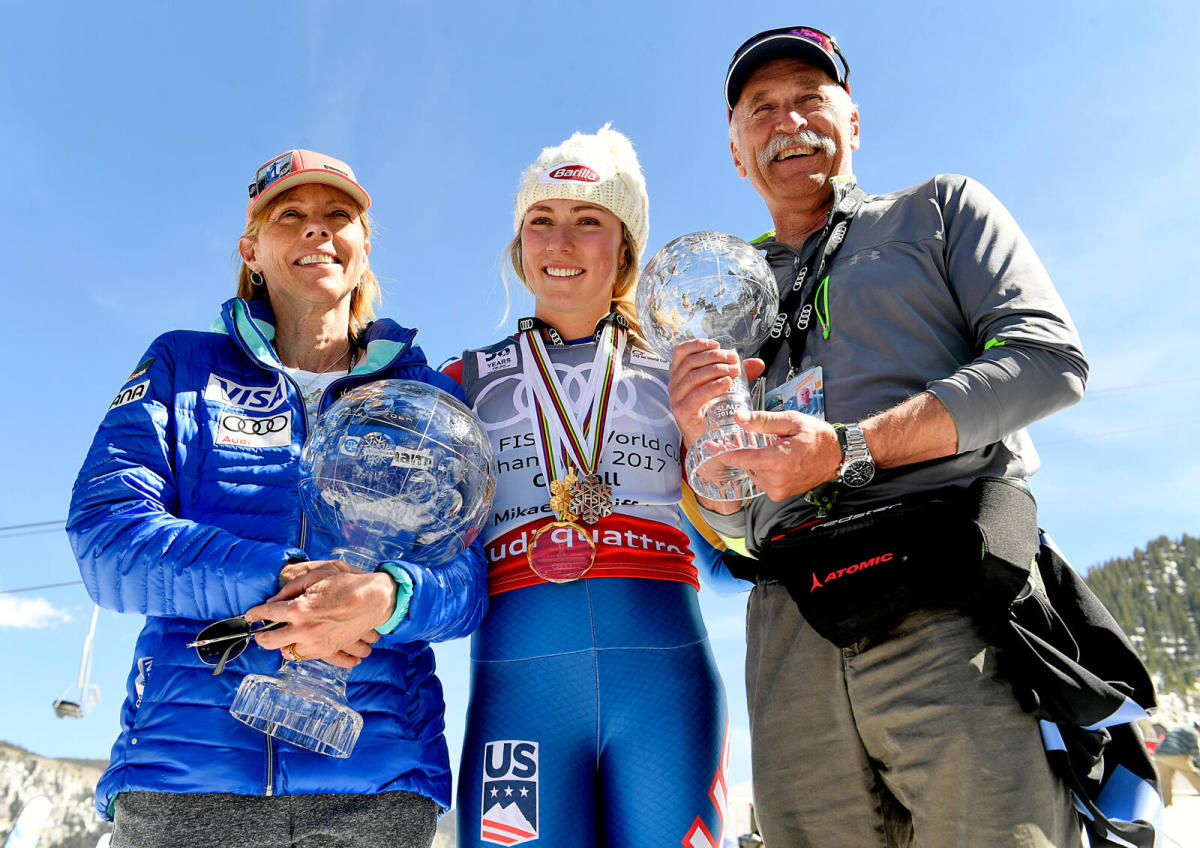
Shiffrin’s parents wanted Mikaela to find a balance; they grounded their children in a range of activities—soccer and tennis, wind surfing and unicycle rides—while also spending thousands of hours on the slopes. Jeff sought both a healthy skier and a strong one who loved the sport as much as he and his wife did. They focused on those concepts, on her mastery of their craft, rather than an overindulgence in results, which started to come anyway.
At age 10, Mikaela asked her parents how long it would be before she raced in the World Cup. Not long, it turned out. She joined the circuit just before getting her driver’s license and climbed her first World Cup podium at age 16, back in 2011 in Austria. Within four years she had won a slalom race by more than three seconds, which marked the largest victory margin in that discipline in almost half a century. She competed in two Olympics—winning three medals, two of them gold. At that point, Mikaela had everything she ever wanted—her career had started to take off, with her family by her side and integral to her success. Everything seemed perfect—until she started to win more races, more often, than any skier in the history of her sport.
***
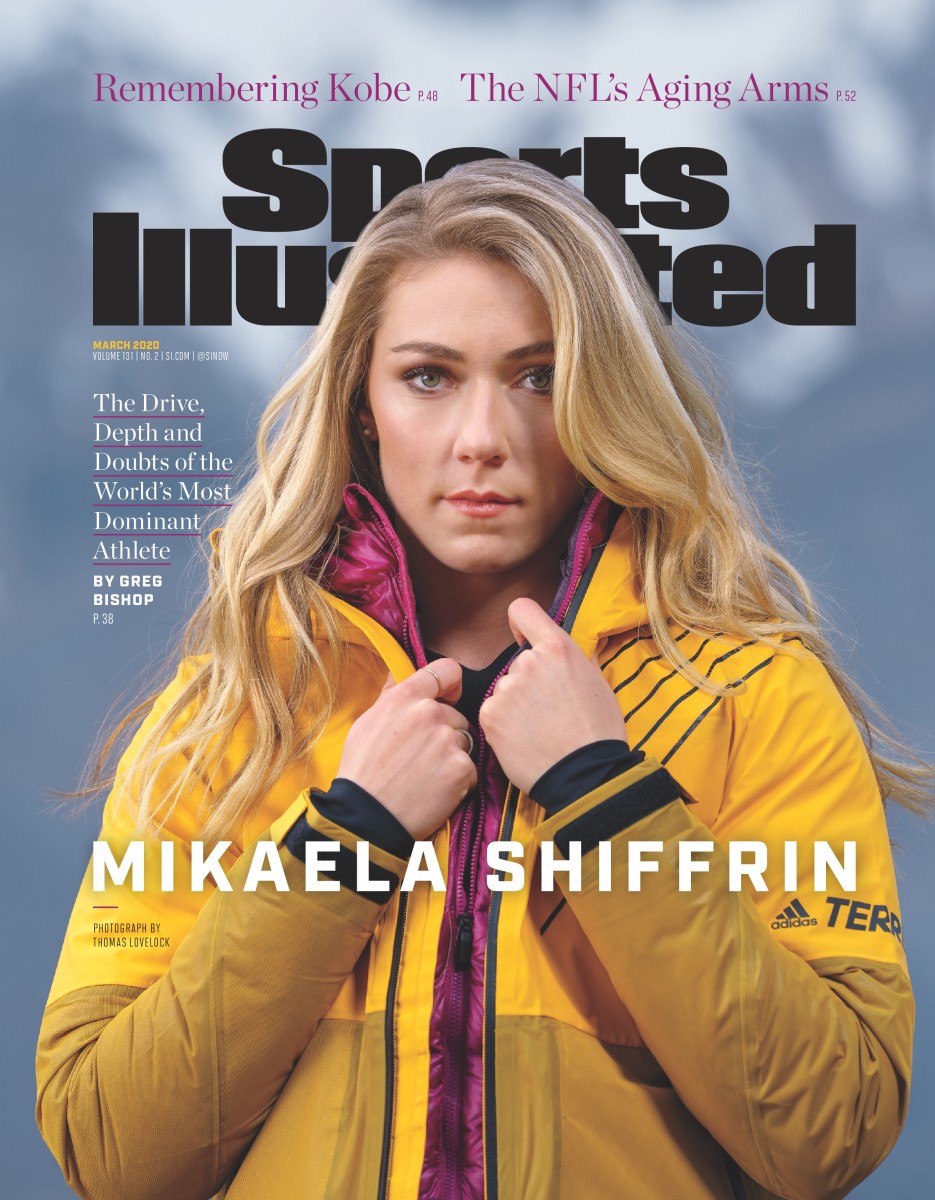
In staggering sum: Last season, Shiffrin won her third-straight overall title, topped the 30-year-old single season victory record by three races and reached 50 wins faster than any skier in history. She started to embrace all the expectations, the cover shoots and being a ubiquitous face on TV, thanks to the SUV commercial she starred in. Outside of her new obligations, she wanted to keep her focus on her skiing, not her results, just like her parents had taught her. And the more she won, the easier it was to juggle it all, which was remarkable, considering the sheer number of factors that go into winning any one ski race.
Shiffrin competes across multiple disciplines, against many women who train specifically for one or maybe two individual events. Because she must train for more races and races more, she will inevitably train less in any one discipline and will be less familiar with the mountain and the courses. Factor in rain, sleet, snow, hail, shifting wind conditions, flat light, obscene turns, steep grades, uneven terrain, crowd noise—not to mention her field of sometimes 50 competitors, who also train year-round, with their own teams—and it’s a wonder how Shiffrin triumphed as often as she did last season. Golfers can miss a shot here and there. Tennis stars can lose the odd set. Boxers can turn knockdowns into knockouts. Shiffrin can’t screw up a single turn. “To conquer all of those things with that high of percentage of win rate is just beyond belief,” Shaw says.
“I feel like one day I’m going to wake up and not believe it happened,” says Shiffrin’s strength coach, Jeff Lackie. “It defies logic. When you’re standing there at the finish, or on the hill, and you’re watching it unfold in front of you, and you know the work and dedication she’s put into it, it’s still impressive. Later on, people that don’t even understand the sport are replaying the highlights, and you’re saying, ‘What she does is insane. It’s not even remarkable. It’s next-level dominance.’ ”
Shiffrin is on pace to collect more than 120 victories. The Swedish skiing legend Ingemar Stenmark, who won a record 86 races in the 1970s and ’80s, wrote in an email that because of how Shiffrin skis, with a “controlled and measured fury,” along with “peak technical proficiency,” she should be less susceptible to injury. Stenmark believes Shiffrin will be the first ski racer—and “maybe the only one”—to stand atop the winner’s podium more than 100 times. “She’s the most solid racer I’ve ever seen in terms of form to prevent injuries,” says Bode Miller, the retired American champion.
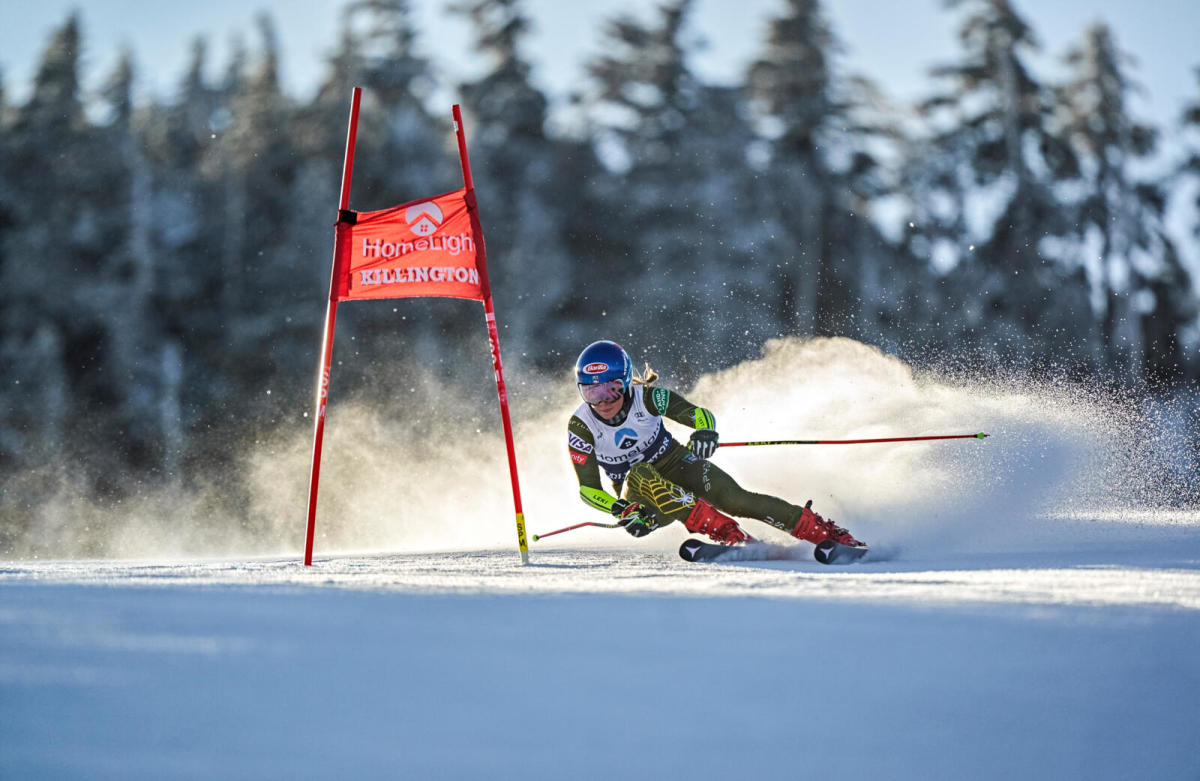
There’s a flip side to all that winning, though. Stenmark adds that when he started to collect so many titles, he grew tired of reporters asking him about his losses, some of which came by fractions of a second, or about the next record he would break. He found it harder to summon as much internal motivation. And harder, too, to respond to any relative “setbacks.”
***
There’s one word that bothers Shiffrin: human. She hates when people say that about her, because it’s usually meant as an insult. She’ll barrel down some mountain, a blur on two skis, lose by hundredths of seconds in almost perfect races, only to hear some internet yahoo say it proves she’s human, as opposed to some sort of ski-racing cyborg.
In the right context, though, Shiffrin is more human than most star athletes. She’s admittedly awkward, blissfully honest, yet introspective and open about her own vulnerability. (“She’s definitely an introvert in an extrovert world,” says Mike Day, another coach.) Shiffrin describes meeting celebrities or other famous athletes as “surreal,” even as her accomplishments outpace theirs. She says she once wanted to grow up to become a flying rainbow horse, knowing she lived her life inside that ski bubble. She doesn’t take herself too seriously, except when she does, in her own head. It’s those moments, the ones filled with doubt and anxiety, that complicate her relationship with her own greatness.
On the slopes this season, there has been more cause for anxiety than usual. She went winless for two and a half weeks in January—but still made six podiums that month, meaning she was missing wins by fractions of a second. Still, it’s all relative: As the calendar turned to February, she led two of the four classic events in the World Cup standings and ranked second in the other two. Her overall lead had ballooned to more than 400 points, and while she had lost a handful of races by a few hundredths of seconds, she had won others by as much as 0.27 seconds.
In January, at the World Cup event in Bulgaria, Shiffrin captured the downhill race on one day and the super G roughly 48 hours later—good for career wins 65 and 66, and putting her one shy of Austrian icon Marcel Hirscher, who ranks third behind Stenmark and Lindsey Vonn (82) all-time. This season alone, Shiffrin has triumphed in four disciplines: slalom, giant slalom and the aforementioned downhill and super G. Should she return to competition before the season ends on March 22, she could become just the fifth skier to win in five disciplines in the same season with a victory in a combined race.
How Shiffrin reacted to this so-called slump says something about her internal struggle, too. She had spent the weeks before this season saying she would not concentrate on winning, that she could manage expectations because hers didn’t involve victory totals. She said she would focus on her training and her process, which, she now admits, is much easier when she’s actually winning. Her mother had worried about that earlier last fall, noting that she considered 17 wins an aberration. “This season’s been a bit of a struggle again,” says Mikaela, a few days before receiving the news about her father. “If that’s where the bar is now, it’s nearly impossible to even come close to that, let alone exceed it.”
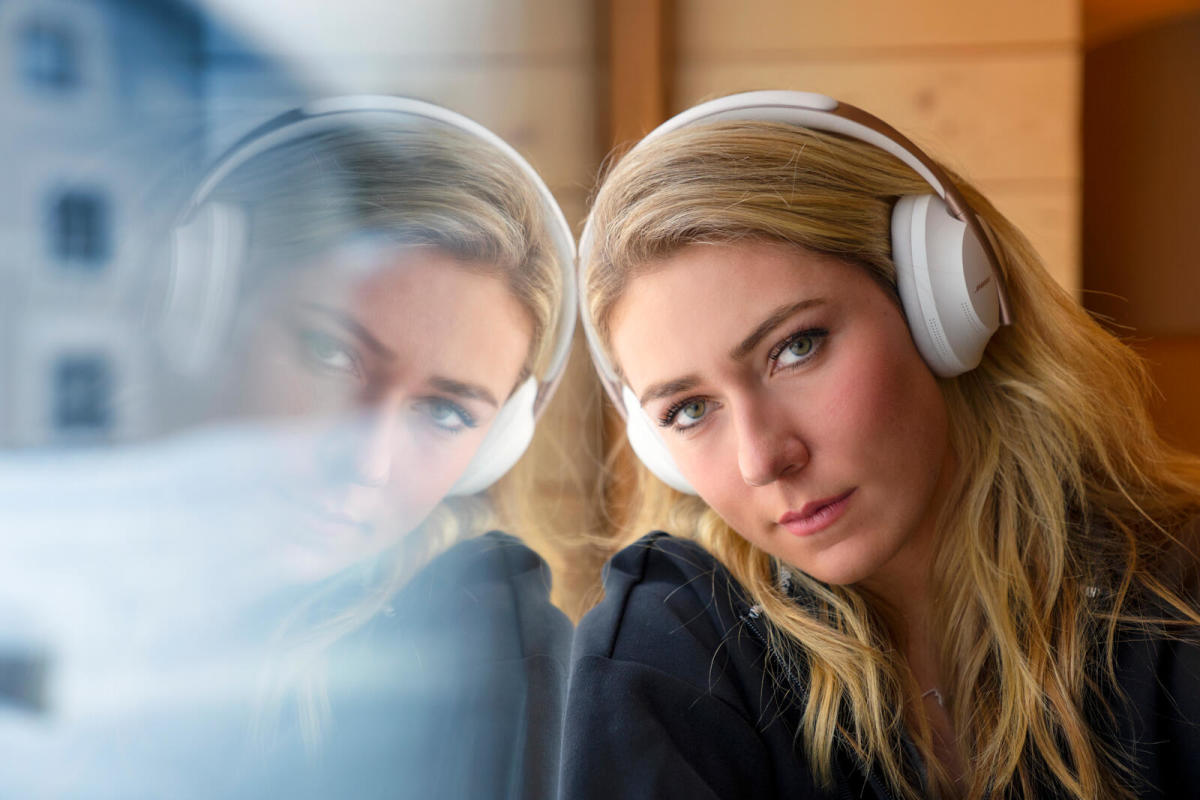
Shiffrin is somehow able to let that kind of doubt and her own unnerving belief coexist inside her head, and that makes her different from—and more interesting than—many star athletes. She’s capable of standing in a starting gate, momentarily thinking that she has forgotten how to ski, and then seconds later tearing down a mountain at speeds that dizzy her competition.
Of course, it was easier to ignore the anxiety when she was winning at a historic rate, but when that wasn’t happening, she again looked inward, to her process. She added strength and mobility workouts and extra rest during that in-season training week that straddled the end of January and the beginning of February.
Then she got the phone call. And none of that process seemed important anymore.
***
There’s a story about Shiffrin that shows how she sees herself compared with how others see her. It took place at last year’s ESPYs in Los Angeles. There, in the plush red seats of the Microsoft Theater, one row from the dramatically lit stage and the host, comedian Tracy Morgan, Shiffrin sat among her peers: gymnast Simone Biles, soccer star Alex Morgan and WNBA All-Star Breanna Stewart, her fellow nominees for Best Female Athlete.
Not only did the skier expect to lose the award—Alex Morgan, fresh off the Women’s World Cup victory, took the prize—Shiffrin didn’t even prepare a speech. As the award ceremony unfolded, she felt “weird,” she says, “because it’s hard to imagine that I have a place there.”
By there, she means next to Morgan and Megan Rapinoe, who spent most of the evening signing ticket stubs and body parts, frenzied crowds forming all around them. Rapinoe seemed to glow, Shiffrin recalls, “more of an icon than she already was.” She means sitting by NFL superstars Odell Beckham Jr. and Patrick Mahomes, and seeing their diamonds glisten under the stage lights.
By there, Shiffrin means inside the strange ecosystem of sports and celebrity, the paparazzi clicks, the Instagram followers, the actual following. She knows she’s at once a part of that world and yet, feels apart from it; she knows that she belongs in any list of the planet’s most elite athletes, and yet, when she met LeBron James that day, her hands shook.
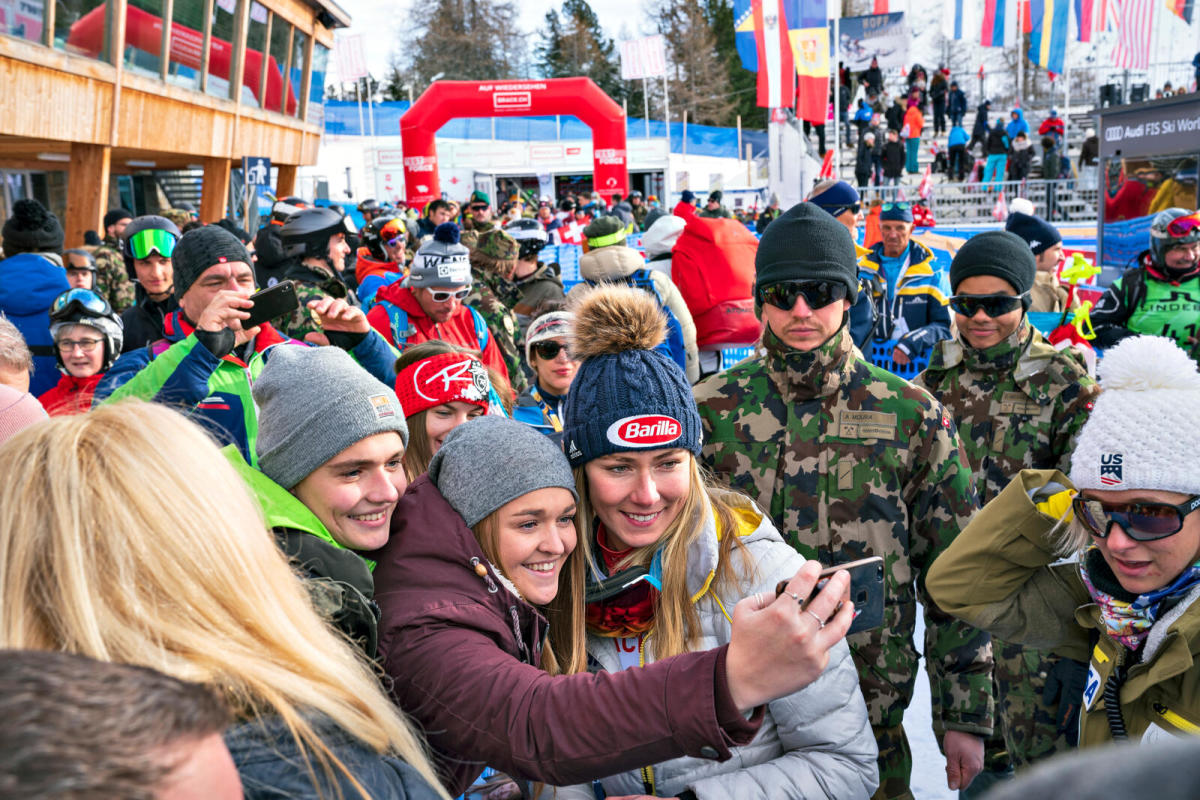
Shiffrin admits that she reads the things that are posted and written about her. She also admits that she should not be reading them. It leads her too far down inside her own head. But when that happens, she knows the safe place where she was taught to always return. She dives back into training, climbs back into the bubble, finds something closer to peace. She’ll take long rides on the bike, or walk with her mother, or watch one her favorite television shows, like Schitt’s Creek. She’s bummed this season will be the last one.
She’s trying. To be normal. To be legendary. To be O.K. with either one or both. To process her grief and return to the mountains, like her father would have wanted. To ski freely, like he taught her, feeling herself gathering speed, almost like a ball of energy, and with every perfect turn, every precise angle, adding more energy to the ball. “My best runs I’ve been able to continue building on that energy ball and not lose a lot from making mistakes and losing connections on turns,” she says. “Everything is so grounded and so in tune with itself that everything keeps building. That’s directly related to my physical energy.”
That Shiffrin can process what it feels like to control two skis attached to her feet while moving at 80 miles per hour, and not only analyze what that’s like but explain it to mere mortals, says something about her, too. Like: that maybe all the times she gets inside her own head are good for her. It’s a tricky balance, sure, but this is Mikaela Shiffrin, who can pull off the rarest of feats: She’s the most dominant athlete on the planet and doesn’t quite realize it.
